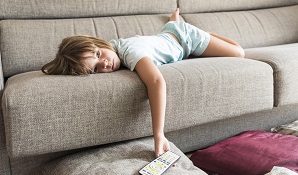My teacher friends tell me that most of the parents they come into contact with – as much 95%, even - are perfectly nice, reasonable, rational human beings. But that other 5% or so? They flat out ruin the job.
Mostly, the problems arise from poor communication. Misunderstandings. Blaming. Defensiveness. On the flipside, good communication between parents and teachers can have a very positive impact on the child’s success in school. After all, when we are working together to support and educate this child, good things happen.
In primary school in particular, parents and teachers communicate regularly both on practical matters (“we will be going to the Zoo on Thursday”) and on academic problems (“her pencil grip needs work”) and behavioural issues (“John is biting the other children”). Communication might be as casual as a hello at drop off, or as formal as a sit-down meeting to discuss a specific problem. In high school, communication tends to be structured around reports and formal parent-teacher meetings, unless there is a specific problem.
Good communication means less friction and more cooperation. But it’s not always straightforward. As in all human interaction, it’s easy to get the wrong end of the stick, to slip up, to take offence (or give it). All the more so where our beloved children are concerned, and emotions run high.
Communication is a two-way street. Take care of your side of it with these tips.
Know what’s up
- Read the newsletter, email communication and anything else that’s sent home (if your kid is young, this may necessitate a rummage through his bag!).
- Sign up for the Communicator or similar app if your school subscribes to it, and get school news and info on your phone or computer.
- Consider a WhatsApp group for the class or sports team.
- Go to the start of year info talks and the parent-teacher meetings. Face-to-face time is important for building a relationship.
Tell them what’s going onGive the teacher a heads-up if there’s something happening at home or in the family that may affect your child’s happiness or performance. A separation, a death (even of a beloved pet), an illness or a developmental issue, an extended business trip or some other problem can unsettle or upset a child, particularly when they are young. Teachers say that they appreciate knowing what’s going on, so that they can keep an eye on the child and perhaps give some extra support and attention. An email or sms might do the trick, or you might need to make an appointment to talk in person.
Pick your time …If your child is in pre-primary or early primary school, you will probably see teachers at drop off or pick up time. This is a fine time for a quick practical question, but not a good time for anything much more than that. Teachers are under pressure with all the parents and kids coming in and out. If you want a proper conversation, ask your teacher when would be a good time to talk. Make an appointment.
… And pick your battlesThere will inevitably be issues and incidents that irk you. You might think the hair policy is ridiculous, but do you really want to make a big deal out of it? It’s often worth just accepting minor irritations as part of the package.
Speak upIf you’ve decided that the issue or incident is something you can’t just ignore and move on from, then address it sooner rather than later. Take your troubles to the right people, through the proper channels. If you are concerned about your child’s progress, speak to his teacher. If it’s a sports-related issue, go to the coach or the head of sport. More serious issues, or issues that haven’t been dealt with adequately, may need to go up the chain of command to the principal. The point is – take your problem to someone who can help fix it.
Watch your toneOnly 17 percent of American teachers feel their opinion is always taken seriously by their students’ parents, according to a study conducted by Parents magazine and the National Education Association.
Teachers are generally reasonable people and committed professionals who want the best for their students. Approach discussions with the expectation that you are on the same side and wish to resolve the issue to the benefit of the child.
It’s hard to have an unhappy child. It’s easy for that concern to take the form of anger, or criticism. Teachers often find parents quick to blame them for problems. After all, we’re paying a whack of money for this school, and look at that handwriting!
If your child’s teacher raises concerns about your child’s progress or behavior, it’s helpful to ask questions that will help you work out what is really going on. Focus on identifying the problem, and coming up with a plan towards as a solution. Take a positive, cooperative attitude and tone: “How do you suggest we tackle this?” is a whole lot different from, “So what are you going to do about it?”
Recognise the positiveJust like the rest of us, teachers like positive feedback. A teacher will be delighted to hear that your daughter is loving maths this term, or that your son seems to be thriving in her class. It makes tough conversations easier if you’ve had some positive ones.
Don’t feed the gossip millOne of the biggest complaints you’ll hear from schools is about “the car park mafia”. In the age of social media, you can add the WhatsApp group or the Facebook posts to that. It’s very easy to spread rumours and fan flames, but being honest and direct is always best.
The views and opinions expressed in this article are those of the authors and do not necessarily represent or reflect the views of 1Life or its employees.




